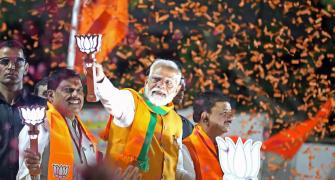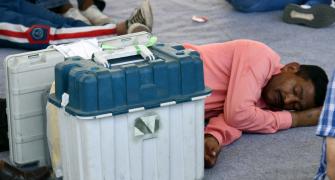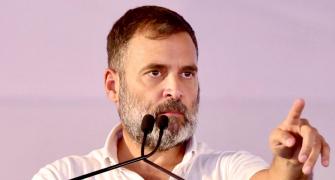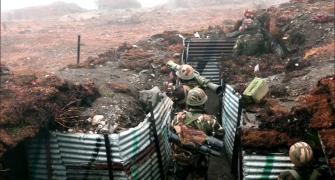Luis Posada Carriles, a 77-year-old former CIA operative and Venezuelan security official, was taken into custody by US immigration authorities, the Homeland Security Department said in a statement.
The department did not say what it planned to do with Posada. Venezuela has asked for his extradition, and Cuba has asked that he be sent to Venezuela for retrial in the bombing or go before an international tribunal.
Generally, the US government does not return people to countries acting on Cuba's behalf, the department said. It has 48 hours to determine his immigration status.
Posada escaped from prison in Venezuela in 1985 while awaiting a prosecutor's appeal of his second acquittal in the bombing of a Cuban jetliner near Barbados. His whereabouts had been unknown until he surfaced in Miami in March and sent word that he was seeking asylum.
The request brought protests from Cuba and put the United States in an awkward position, given the war against terror.
Earlier Tuesday, before he was taken into custody, Posada told reporters he was willing to abandon his asylum request and leave the United States for another country.
"If my petition for political asylum created any problem to the government of the United States, I am ready to reconsider my petition," he said. "My only objective is to fight for the freedom of my country."
US officials seized Posada soon after he emerged from about two months in hiding and granted interviews to TV stations and The Miami Herald.
Posada was arrested at a home in the Miami area. He was initially taken to an immigration detention center, then flown by helicopter to an undisclosed location, said Posada's friend and benefactor, Santiago Alvarez.
His attorney, Eduardo Soto, said the asylum request was being refiled because of Posada's arrest. He also questioned the US government's timing.
"It was the U.S. government's preconceived notion to detain him before we withdrew our application for asylum," Soto said. "You don't need to formally remove a person who wants to
Castro has demanded Posada's arrest by US authorities for his alleged role in the airliner bombing and other anti-Castro violence. That demand was echoed by thousands in protests in Havana on Tuesday.
Cuba's parliament speaker, Ricardo Alarcon, said after Posada's arrest that the Cuban government will wait to see if President Bush "lives up to his rhetoric or if they help an old friend."
Venezuela recently approved an extradition request, and Castro has made numerous televised speeches calling Posada a terrorist and accusing the United States of a double standard on terror. The United States and Venezuela have an extradition treaty.
"The majority of Americans would never be in favor of harboring a terrorist," said Wayne Smith, a former US envoy to Cuba who now heads the Cuba program at the Washington-based Center for International Policy. If the United States were to grant asylum, Smith added, "we will be seen as hypocrites and as being against terrorism only when is suits our purposes."
Pepe Hernandez, president of the Cuban American National Foundation, said Posada deserves a chance to seek asylum in the United States. Posada is seen as a hero by many in the Cuban-American community in South Florida.
"He's been fighting one of the worst tyrannies this continent has experienced," Hernandez said.
Posada and three others were pardoned last August by Panama's president for their role in an alleged assassination plot in 2000 against Castro during a conference in Panama. Posada was also connected to a series of 1997 bombings of tourists sites in Cuba, one of which killed an Italian tourist.
In an interview in Tuesday's Herald, Posada denied any involvement in the airliner bombing but refused to confirm or deny involvement in other attacks, telling the newspaper: "Let's leave it to history."
"I feel that I've committed many errors, more than most people," he said. "But I've always believed in rebellion, in the armed struggle. I believe more and more every day that we will triumph against Castro. Victory will be ours."
He has said he entered the United States through Mexico and came to Miami on a bus.
(Associated Press writers Curt Anderson in Miami, Lara Jakes Jordan in Washington and Anita Snow in Havana contributed to this story)








